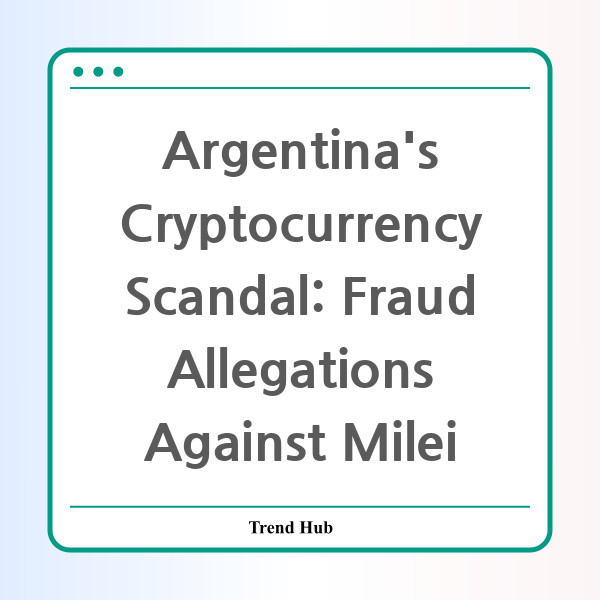* This website participates in the Amazon Affiliate Program and earns from qualifying purchases.

What happens when a nation’s leader promotes a cryptocurrency that goes belly-up in a matter of hours? This is the burning question in Argentina, as President Javier Milei faces a storm of controversy following his promotion of the cryptocurrency $LIBRA. With accusations of fraud and potential impeachment swirling around him, Milei’s initial enthusiasm for the digital coin has turned into a political liability.
Recently, Argentine lawyers took a bold step by filing fraud complaints against President Milei in a criminal court. Their accusation centers on Milei’s social media promotion of $LIBRA, a cryptocurrency that was intended to spur economic growth. However, the aftermath was catastrophic for many investors: the coin surged to almost $5 but then plummeted to below $1 shortly after.
After the rapid decline, Milei removed his social media post promoting $LIBRA, stating that he aimed to curb speculation regarding the coin. Yet, this swift action has not shielded him from backlash. Lawyers contend that his promotion was misleading, likening the situation to a "rug pull"—a term used in the cryptocurrency community to describe a scenario where developers disappear with investor funds after artificially inflating the value of a token.
Milei has denied any involvement in the development or profitability of the cryptocurrency. He claims he was not aware of the project’s specifics and blamed political opponents for manipulating the situation for their gain. Nonetheless, the damage had already been done, leading to widespread criticism not only from investors but also from some within the fintech community.
The scandal has escalated to the point where opposition lawmakers are threatening to initiate impeachment proceedings against the president. Lawmakers like Leandro Santoro have been vocal in their disapproval, calling the incident a disgrace that damages Argentina's reputation internationally. As the political landscape becomes more turbulent, the Anti-Corruption Office has stepped in to investigate the circumstances surrounding the cryptocurrency’s promotion.
This saga raises essential questions about the intersection of politics and cryptocurrency in Argentina. As the nation grapples with economic challenges, the allure of digital currencies as a vehicle for investment and growth is undeniable. However, the risks associated with unregulated cryptocurrencies remain high. The $LIBRA incident may serve as a stark reminder of the volatility and potential for manipulation in the crypto market.
What does this mean for the future of cryptocurrencies in Argentina? Will investors become more cautious in their approach, or will the promise of high returns continue to draw them in, regardless of the risks? One lesson is clear: as cryptocurrencies become more mainstream, the importance of transparency and due diligence grows exponentially—especially when political figures are involved.
In conclusion, the unfolding drama surrounding President Milei and the $LIBRA cryptocurrency serves as a cautionary tale. Fraud allegations, potential impeachment, and public outrage are significant consequences of this incident. As we watch the events transpire, the future of cryptocurrency regulation and political accountability in Argentina remains uncertain, but one thing is sure—the ramifications of this situation will echo far beyond the crypto community.
* This website participates in the Amazon Affiliate Program and earns from qualifying purchases.